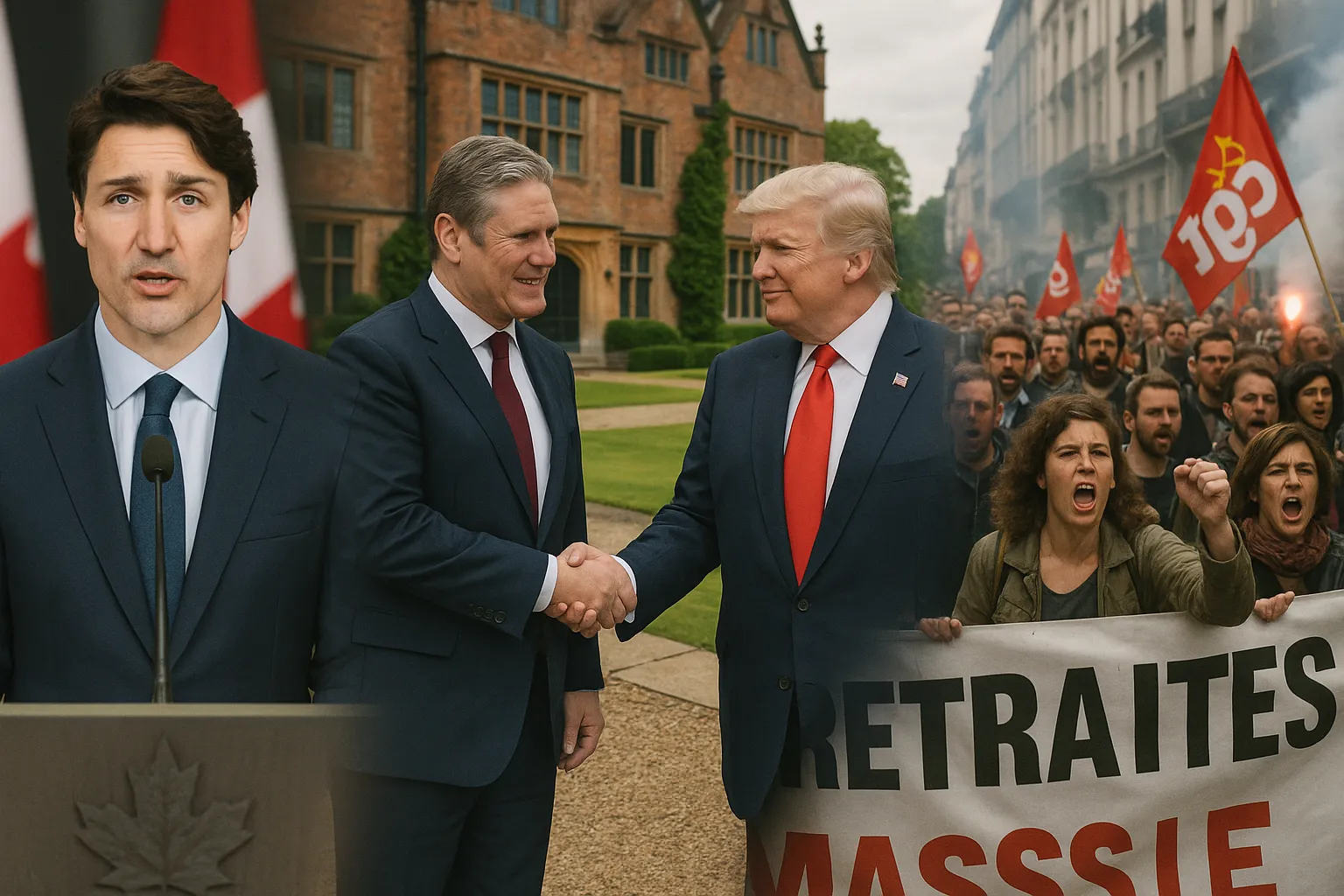Prime Ministers Forge Global Ties as Protests Erupt at Home

Lead Canadian Prime Minister Mark Carney announced key diplomatic appointments today, while UK Prime Minister Keir Starmer signed a landmark tech prosperity deal with former U.S. President Donald Trump in Buckinghamshire. In France, cross-sector strikes targeted austerity measures proposed by outgoing Prime Minister François Bayrou.
Nut Graf These events underscore the diverse challenges facing modern heads of government-from strengthening international partnerships and trade to managing domestic unrest over fiscal policy. As leaders pursue strategic initiatives abroad, citizens at home are voicing deep frustration over budget cuts and tax reforms.
International Diplomacy and Trade
- Mark Carney named the Honourable David Lametti as Canada’s new Ambassador and Permanent Representative to the United Nations, and announced a forthcoming trade mission to Mexico to deepen economic ties in priority sectors.
- In Aylesbury, UK Prime Minister Keir Starmer joined Donald Trump at Chequers Estate to sign the UK-U.S. Technology Prosperity Deal, committing both nations to collaborate on AI research, semiconductor development and cybersecurity frameworks.
Domestic Unrest in France
- More than 250 demonstrations took place across France today, as teachers, transport workers and public‐sector unions walked out against austerity measures championed by outgoing Prime Minister François Bayrou.
- In Paris, up to 45 percent of public schools shuttered, and transport networks were severely disrupted, with metro and regional rail operators reporting service reductions of 30 percent.
Implications and Next Steps Carney’s diplomatic moves aim to bolster Canada’s global influence and support domestic industries through expanded trade. Starmer’s agreement with the U.S. is designed to secure the UK’s position in emerging tech markets. Meanwhile, French unions have vowed further action if the incoming government, led by Prime Minister-designate Sébastien Lecornu, fails to roll back contested budget cuts. Public pressure may force policy revisions, shaping the next phase of France’s economic strategy.
Categories
Autos and vehicles Beauty and fashion Business and finance Climate Entertainment Food and drink Games Health Hobbies and leisure Jobs and education Law and government Other Politics Science Shopping Sports Technology Travel and transportationRecent Posts
Tags
Archives
08/19/2025 (3) 08/20/2025 (40) 08/21/2025 (27) 08/22/2025 (22) 08/23/2025 (4) 08/24/2025 (21) 08/25/2025 (30) 08/26/2025 (24) 08/27/2025 (29) 08/28/2025 (16) 08/29/2025 (9) 08/30/2025 (13) 08/31/2025 (17) 09/01/2025 (167) 09/02/2025 (124) 09/03/2025 (149) 09/04/2025 (112) 09/05/2025 (72) 09/06/2025 (169) 09/07/2025 (162) 09/08/2025 (150) 09/09/2025 (176) 09/10/2025 (194) 09/11/2025 (194) 09/12/2025 (186) 09/13/2025 (207) 09/14/2025 (159) 09/15/2025 (175) 09/16/2025 (198) 09/17/2025 (196) 09/18/2025 (196) 09/19/2025 (207) 09/20/2025 (129) 09/21/2025 (4)